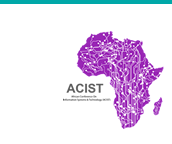Location
Addis Ababa University, Ethiopia
Start Date
2-8-2019 9:00 AM
End Date
2-8-2019 12:00 AM
Description
Internet access continues to increase among the youth in developing countries, like South Africa, due to the exponential growth of mobile penetration and the higher education system’s reliance on Information and Communication Technologies. Higher education graduates are expected to be digital citizens in the workplace, which is characterised by socio-economic inclusion and academic capability. However, this increased exposure to the Internet does present information privacy challenges. This paper investigates young adults’ perceptions and concomitant behaviours to protect their information privacy when using Internet sites. The paper further aims to unpack young adults’ understanding of the potential problems and their preparedness for privacy breaches that may cause.
The study makes use of Azjen’s (2006) Theory of Planned Behaviour (TPB) as its theoretical foundation. A mixed methods approach that consisted of a survey of 148 questionnaires and five focus groups with 31 participants was used to investigate the online information privacy awareness of young adults. The study was conducted at a previously disadvantaged university in the Eastern Cape Province in South Africa and found that most of the students are unaware of the activities that may threaten their online privacy. While some students were aware of potential online identity theft and financial loss, most of them did not use privacy settings or read the terms and conditions when signing up to protect their privacy. The study recommends that privacy awareness of young people must increase and digital skills training must be undertaken in order to protect their information privacy when online.
The African Digital Citizen’s Awareness of Online Information Privacy
Addis Ababa University, Ethiopia
Internet access continues to increase among the youth in developing countries, like South Africa, due to the exponential growth of mobile penetration and the higher education system’s reliance on Information and Communication Technologies. Higher education graduates are expected to be digital citizens in the workplace, which is characterised by socio-economic inclusion and academic capability. However, this increased exposure to the Internet does present information privacy challenges. This paper investigates young adults’ perceptions and concomitant behaviours to protect their information privacy when using Internet sites. The paper further aims to unpack young adults’ understanding of the potential problems and their preparedness for privacy breaches that may cause.
The study makes use of Azjen’s (2006) Theory of Planned Behaviour (TPB) as its theoretical foundation. A mixed methods approach that consisted of a survey of 148 questionnaires and five focus groups with 31 participants was used to investigate the online information privacy awareness of young adults. The study was conducted at a previously disadvantaged university in the Eastern Cape Province in South Africa and found that most of the students are unaware of the activities that may threaten their online privacy. While some students were aware of potential online identity theft and financial loss, most of them did not use privacy settings or read the terms and conditions when signing up to protect their privacy. The study recommends that privacy awareness of young people must increase and digital skills training must be undertaken in order to protect their information privacy when online.



